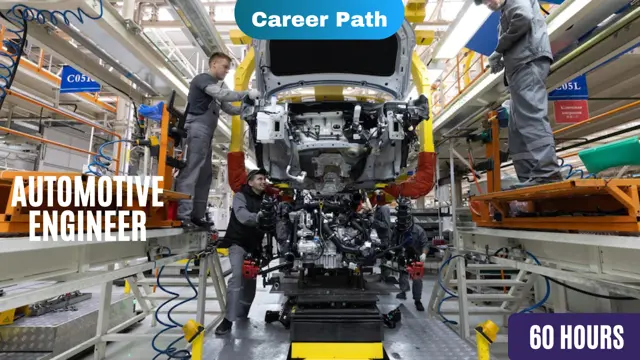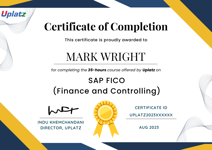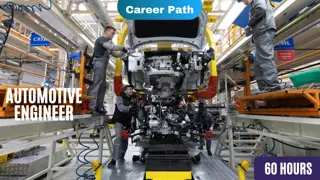
Automotive Engineer Career Path
Self-paced videos, Lifetime access, Study material, Certification prep, Technical support, Course Completion Certificate
Uplatz
Summary
- Uplatz Certificate of Completion - Free
Add to basket or enquire
Overview
Uplatz provides this comprehensive Career Path program on Automotive Engineer. It is a program covering all topics related to Automotive Engineering in the form of self-paced video tutorials. You will be awarded Course Completion Certificate at the end of the course.
Career Path - Automotive Engineer consists of the following courses:
1) Automotive Embedded Systems & Applications
2) Automotive Electrics & Automotive Electronics
3) Automotive Control Systems
Automotive engineers play a crucial role in the design, development, and improvement of vehicles and their components. They combine knowledge from various engineering disciplines to create safer, more efficient, and innovative automobiles.
To become an automotive engineer, you typically need a bachelor's degree in mechanical engineering, automotive engineering, or a related field. Additionally, some engineers pursue master's degrees for specialized knowledge. It's essential to stay updated with the latest advancements and trends in the automotive industry to remain competitive in this ever-evolving field.
Course media
Description
A brief overview of what an automotive engineer does:
Vehicle Design: Automotive engineers are involved in the conceptualization and design of new vehicles or vehicle components. They consider factors like aerodynamics, structural integrity, safety, and aesthetics.
Prototyping and Testing: Engineers create prototypes and conduct various tests to ensure that vehicles meet safety and performance standards. They analyze test data to identify areas for improvement.
Vehicle Systems: Automotive engineers work on various vehicle systems, such as the engine, transmission, suspension, and braking systems, to optimize performance and efficiency.
Materials and Manufacturing: They select appropriate materials and manufacturing processes to ensure the durability and cost-effectiveness of vehicle components.
Emission Control and Sustainability: With increasing concerns about environmental impact, automotive engineers focus on developing vehicles that are eco-friendly and comply with emission regulations.
Electrical and Electronics: Modern vehicles have complex electrical and electronic systems, and automotive engineers work on integrating these systems for optimal functionality, including infotainment, safety features, and autonomous driving technologies.
Safety and Crashworthiness: Engineers conduct crash tests and simulations to enhance vehicle safety and occupant protection.
Innovation and Research: Automotive engineers actively engage in research and development to stay updated with new technologies and trends, aiming to bring innovation to the automotive industry.
Compliance with Regulations: They ensure that vehicles meet all the necessary regulatory and safety standards set by various governing bodies.
Who is this course for?
Everyone
Requirements
Passion and determination to succeed!
Career path
The career path of an automotive engineer can be quite diverse and exciting, with opportunities to specialize in various areas within the automotive industry. Here's a career progression for an automotive engineer:
- Automotive Engineer
Entry-Level Engineer
Design Engineer
Development Engineer
- Control Engineer
Senior Engineer
Project Manager
Technical Specialist
R&D Analyst
Manager
Questions and answers
Currently there are no Q&As for this course. Be the first to ask a question.
Certificates
Uplatz Certificate of Completion
Digital certificate - Included
Course Completion Certificate by Uplatz
Reviews
Currently there are no reviews for this course. Be the first to leave a review.
Legal information
This course is advertised on reed.co.uk by the Course Provider, whose terms and conditions apply. Purchases are made directly from the Course Provider, and as such, content and materials are supplied by the Course Provider directly. Reed is acting as agent and not reseller in relation to this course. Reed's only responsibility is to facilitate your payment for the course. It is your responsibility to review and agree to the Course Provider's terms and conditions and satisfy yourself as to the suitability of the course you intend to purchase. Reed will not have any responsibility for the content of the course and/or associated materials.



